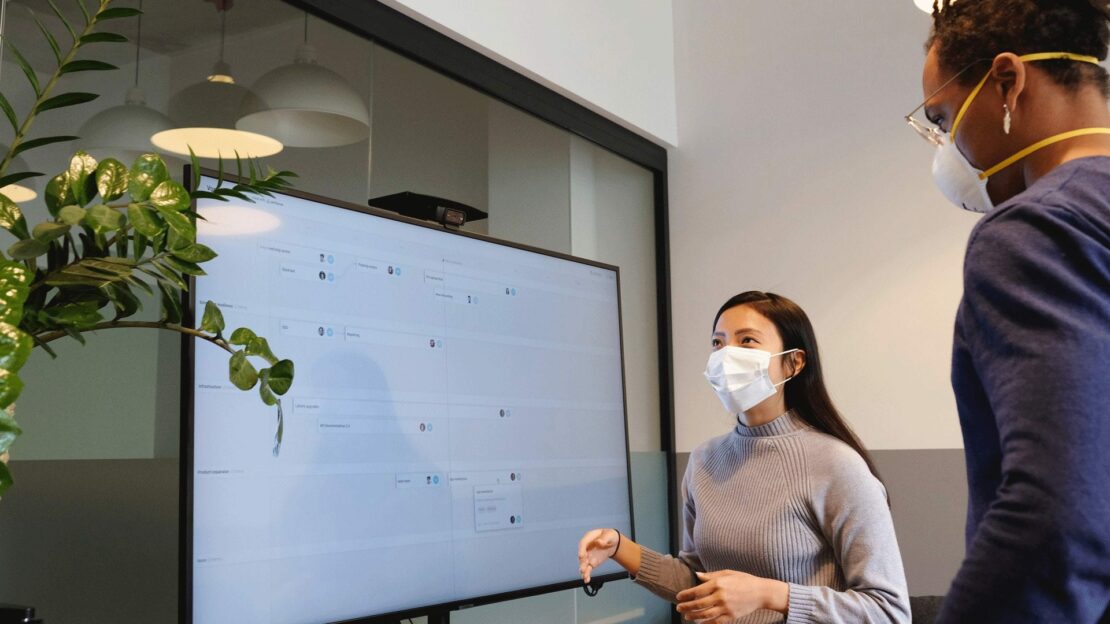Pandemic & Power: vying for supremacy
octubre 6th, 2023
The novel coronavirus may have temporarily dialed down the great-power competition between China and the United States, as both countries turned their attention to battling the pandemic. However, distrust and bitter rivalry persist, and major developments that have happened since the onset of the pandemic suggest further conflict may lie ahead. Grayling’s team in New York explores the situation.
The ink on the U.S./China Phase One trade deal was barely dry when two sides started attacking each other regarding the origin, cause and naming of the novel coronavirus. China and the U.S. went on to trade blows on various key issues, including:
Security and sanctions
On the political front, China passed the Hong Kong national security law, which broadly criminalizes four types of activities: secession, subversion of state power, terrorism and collusion with foreign entities. The law is controversial among Western nations because it is perceived to undermine the original “One Country, Two Systems” framework and jeopardize the freedom of expression, personal security, and judicial independence in Hong Kong. In addition to financial sanctions, the U.S. has imposed visa restrictions on Chinese officials believed to be responsible for undermining Hong Kong’s autonomy. China announced in-kind visa restriction on U.S. officials.
Technology and trust
On the technology front, the U.S. furthered its sanction on Huawei by restricting its ability to use U.S. technology and software to design and manufacture semiconductors abroad. The latest sanction not only affects Huawei’s ability to procure chips for its smartphones and tablets but also negatively impacts foreign government’s perception of Huawei as a viable provider for 5G network, as is evidenced by a major policy U-turn in the UK. China has threatened various retaliatory countermeasures.
Reduced reporting
On the flow of information, both countries have engaged in an escalating race to shut the other side out. In February, the U.S. designated five Chinese state-run media organizations as foreign missions, thereby restricting their scope of activities. The following month, Beijing revoked the accreditations of American journalists from the New York Times, Wall Street Journal and Washington Post. The U.S. retaliated by tightening visa guidelines for Chinese journalists. The consequence of these concerning tit-for-tats is that the quantity and quality of the flow of information will be significantly curtailed at a time of rising tension and distrust.
Every crisis leaves indelible marks on the human psyche. After the Global Financial Crisis of 2007-2008, China grew increasingly wary of unguided capitalism and its seemingly inevitable and dramatic highs and lows of business cycles. Similarly, while the original outbreak of the pandemic happened in China, the longer the current crisis goes on, the more it seems to expose problems within America. If simple measures such as wearing a mask, washing hands and practicing social distancing have proven to be effective at containing the virus elsewhere, failure to do so speaks volume about national leadership and societal habits. Just a few months into the pandemic, the U.S. now accounts for a quarter of the world’s total infection cases and continues to register record daily new cases. Seeing the U.S. failing to get its house in order, China will likely become more assertive in pursuing its interest at home and abroad.
On the other hand, China has done its share to earn further distrust from the U.S. It has denied being the origin of the novel coronavirus and there is doubt about the accuracy of China’s reporting of its own number of deaths. When U.S. stepped up its rhetoric, China disseminated disinformation of the U.S. being the origin of the virus. China is also believed to have taken advantage of the crisis and engaged in “mask diplomacy”, attempting to influence countries in need of PPE (Personal Protective Equipment), by providing supplies in exchange for favorable stances on issues important to China. And allegations of improper Chinese influence over the World Health Organization led to the Trump administration withdrawing support for the international body.
The Phase One U.S./China trade deal brought a fragile and temporary truce, which is now being stress-tested. Whilst we may be getting closer to finding a vaccine, the two most powerful countries in the world are moving further apart.


